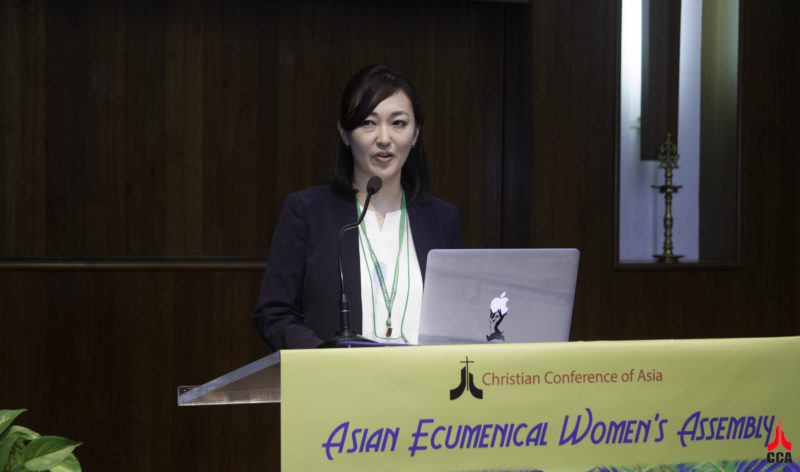Reconciliation is not just a biblical-traditional category of ecclesial discourse, says Japanese feminist theologian Sawako Fujiwara

HSINCHU, Taiwan: “Reconciliation has to be understood not just as a biblical-traditional category of ecclesial discourse, but as a principle that guides Christian life and service. Thus, the brokenness of our communities needs to be discerned and tirelessly addressed by women,” said Dr Sawako Fujiwara, a feminist theologian from Japan.
In the second thematic presentation at the Asian Ecumenical Women’s Assembly (AEWA) on the sub-theme ‘Be Awake to Reconcile’, Dr Sawako called upon the participants to be agents of reconciliation.
Dr Sawako, a prominent young ecumenist from the National Christian Council in Japan (NCCJ) urged the majority women participants ‘to reconcile with their sisters first, then to share what they witness with their brothers, and finally be catalysts for the reconciliation of the whole community’.
“We need to ensure safety and security of all in our communities, and realise the full participation of all, regardless of gender or sexual identity. We need to properly focus attention on transwomen who too often remain ignored in our society, knowingly or unknowingly,” Dr Sawako articulated.
“Today, we need to listen sincerely to the criticism that our theological movement is too often wrestling with gender-based injustice without seriously considering the sexual orientation of others,” stated Dr Sawako Fujiwara, a feminist theologian who currently teaches at the Japan Lutheran Theological Seminary in Tokyo.
Dr Sawako concluded her presentation by providing positive examples and lauded the development of the Asian feminist theological movement.
Stephannie Joy P Mayores from the Philippines moderated the session.










